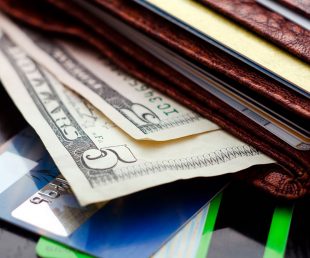Smart Ways to Spend, Save and Budget Right Now
The COVID-19 pandemic’s economic fallout has left mass unemployment numbers in its vast, deep wake. If you recently lost your job, know that you are not alone—there are about 20 million more folks out there who are also collecting a government check to ease the burden. The good news is there are a variety of savings strategies you can take advantage of and make the most of your unemployment benefits.
Dr. Maria James, a personal finance expert, known as “the Money Scientist” and author of a new book, The Brave Entrepreneur’s Desk, says there are ways to stretch and even expand those federal and state unemployment dollars. The first step is to look at where your money is going and stop the leaks. “Anything unnecessary should be paused or temporarily cut, and I use the word ‘temporarily’ because it’s a reminder that these are crazy times, they won’t last forever,” says James. “You have to do what you’ve got to do to make sure you’re spreading those dollars, and you’re able to survive.”
The other thing to understand—especially if this is your first time on unemployment—is that your status can also trigger other regional and federal benefits such as healthcare, discounts for utilities, job training, and childcare. Connect with your state unemployment office to see how to optimize your benefits.
Slash Your Expenses
To cut down on expenses, start by understanding your basic needs. In general, your top priorities are housing, food, phone service, and internet. In order to free up some immediate cash, you’ll first need to determine what you can cut. Perhaps that’s shifting from full cable TV service to internet-only, allowing yourself some low-cost streaming options such as Netflix and Hulu. You can also trade your gym membership for outdoor workouts or free videos, as well as cancel your monthly clothing box and any other non-essential subscriptions.
Meal planning is a great way to save, as well. When you prepare food in advance and stock up on what you’ll use, you’re less likely to order take-out or delivered meals. This is also the time to take advantage of your local supermarket loyalty program. “I can save up to 40% on a grocery shopping trip by using the unique discounts and coupons sent to me because I signed up for those rewards programs,” James says.
Ask for Assistance
If your household income is low enough, you might qualify for SNAP—the Federal Supplemental Nutrition Assistance Program—which offers grocery assistance for food-insecure families. Just be sure to fill your cart with healthy food options. When “people try to budget wisely, or spread their dollars with food, you start buying cheap, unhealthy things, which can cause problems later on down the line with different illnesses and diseases,” James says. Nearly every community has access to a CSA (community-supported agriculture) organization that fills a box with local produce—it’s worth looking into as a way to get fresh food.
You can also try to negotiate other monthly payments. This can mean talking to your landlord or mortgage company to see if there’s a way to get lower monthly payments. If you’re renting, you can come up with a work-trade proposal or give up a parking space for a discount. You can also call your phone, cable and utility companies and explain your situation, as they may be able to offer a more affordable payment plan.
Shift your budget
Finally, for those who are generally strict about their 50/30/20 budget plan (spending 50% of after-tax income on needs, 30% on wants, and putting 20% into savings), you can pause your retirement contributions for now and focus more on your immediate needs. If you usually spend $100 a month on a recurring charitable gift for an organization close to your heart, consider lowering or pausing those donations for now (it’s like putting on your oxygen mask first) – and make up the difference when you have a more reliable cash flow. (Alternatively, you can look into volunteering instead of donating.)
Bring More Money In
The gig economy is still hustling—particularly as lockdown measures ramp up the need for delivery drivers, personal shoppers, and grocery store cashiers. You can also take advantage of a variety of popular mobile apps—such as Wag and TaskRabbit—where you can get paid to walk dogs or help someone complete home improvement tasks. .
“There are a number of side hustle opportunities that are still thriving right now,” James says. Things that might not seem like a big deal to you—like using your truck to help move someone’s couch or participating in focus groups—can be valuable to others and worth some cash.
James also suggests auditing your home for things that you no longer use or need. There are plenty of apps and websites that help you list and sell your goods: eBay, Craigslist, Facebook Marketplace, LetGo, and OfferUp, for starters.
The Big Picture
It’s not a surprise that, especially now, 72% of Americans report feeling stressed about money, and about a third of people with full-time jobs have less than $1,000 stashed away for emergencies. James says to remember to look into low-cost or free activities you can do every day. These can be as simple as reading a book, calling a friend, taking a walk, or trying a free online yoga class. “When things are going on, we don’t always need to be plugged in,” James says. “It’s okay to take a moment to breathe and unplug. Having a de-stress activity takes you back to positivity and re-centers you,” she says.
![]()


